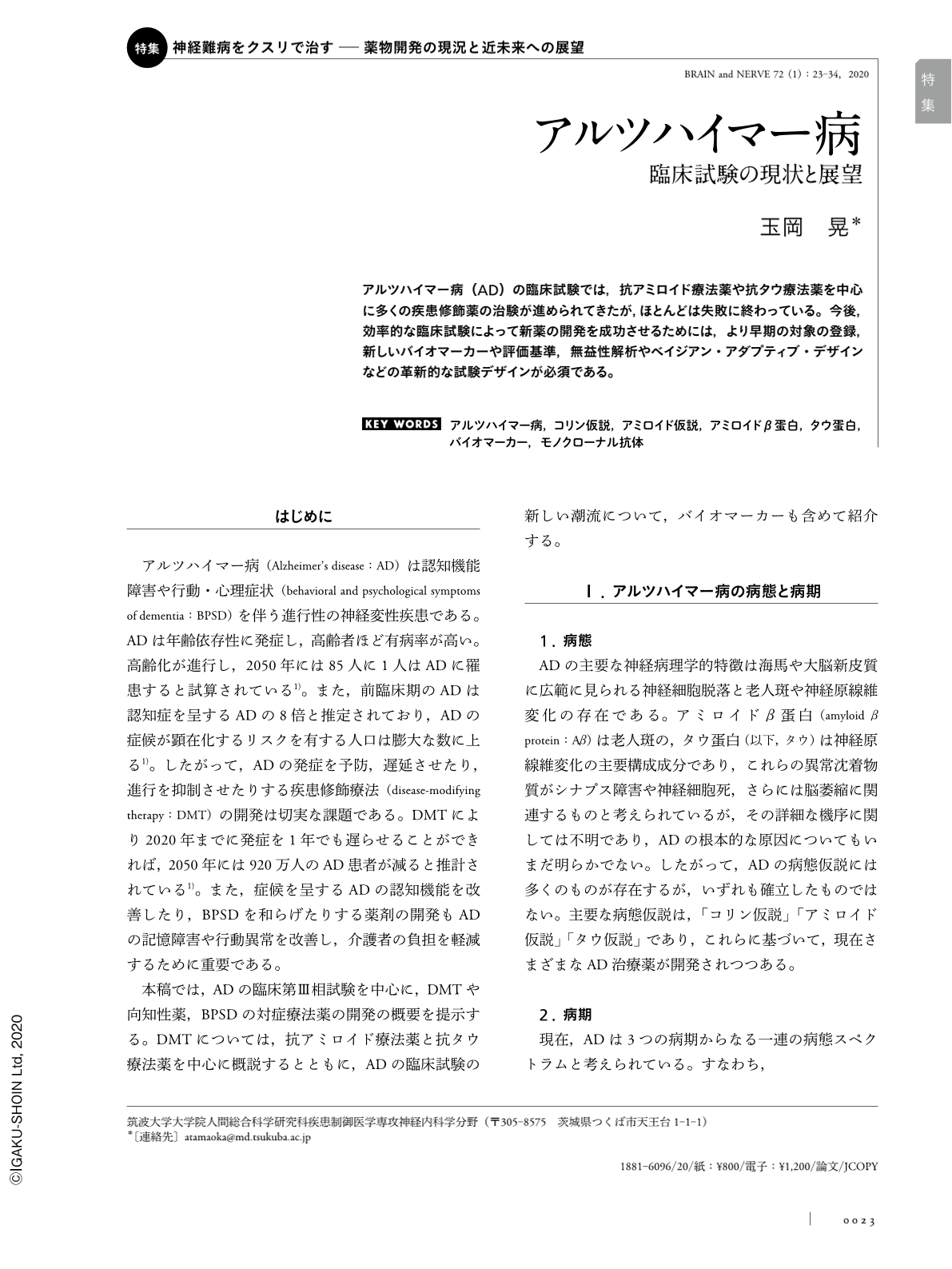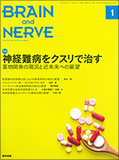Japanese
English
- 有料閲覧
- Abstract 文献概要
- 1ページ目 Look Inside
- 参考文献 Reference
アルツハイマー病(AD)の臨床試験では,抗アミロイド療法薬や抗タウ療法薬を中心に多くの疾患修飾薬の治験が進められてきたが,ほとんどは失敗に終わっている。今後,効率的な臨床試験によって新薬の開発を成功させるためには,より早期の対象の登録,新しいバイオマーカーや評価基準,無益性解析やベイジアン・アダプティブ・デザインなどの革新的な試験デザインが必須である。
Abstract
There is an urgent need for Alzheimer's disease (AD) treatments because of the growing number of individuals with preclinical, prodromal, and dementia forms of AD. Unfortunately, there are few effective treatments for AD, and many drug development trials for AD ultimately have failed. Current AD clinical trials include disease-modifying therapies, symptomatic cognitive enhancers, and symptomatic agents addressing neuropsychiatric and behavioral changes. Disease modifying therapies include anti-amyloid agents and anti-tau agents, both of which contain small molecules, monoclonal antibodies, or biological therapies. Amyloid is the most common specific target in phase 3 and phase 2 disease modification trials. Recent drug development trials for AD include preclinical and prodromal populations. Although biomarkers are increasingly used in drug development for AD, they are not used uniformly for confirmation of AD diagnosis. Enrollment of earlier populations, new biomarkers (e.g., neurofilament light), novel outcomes (e.g., AD Composite Score [ADCOMS]), and innovative trial designs (e.g., futility analysis, Bayesian adaptive designs) are needed to develop effective drugs against AD.

Copyright © 2020, Igaku-Shoin Ltd. All rights reserved.


